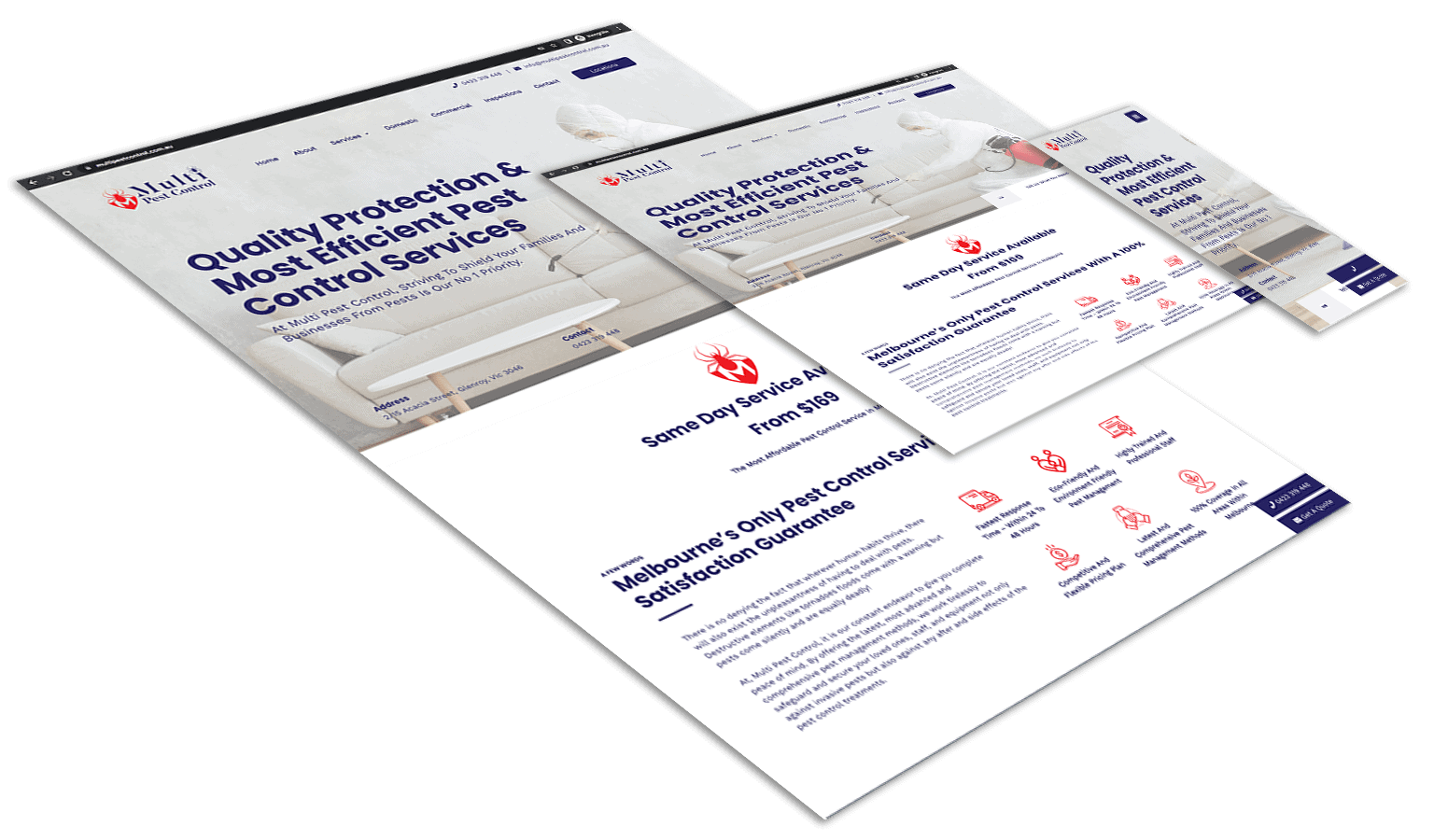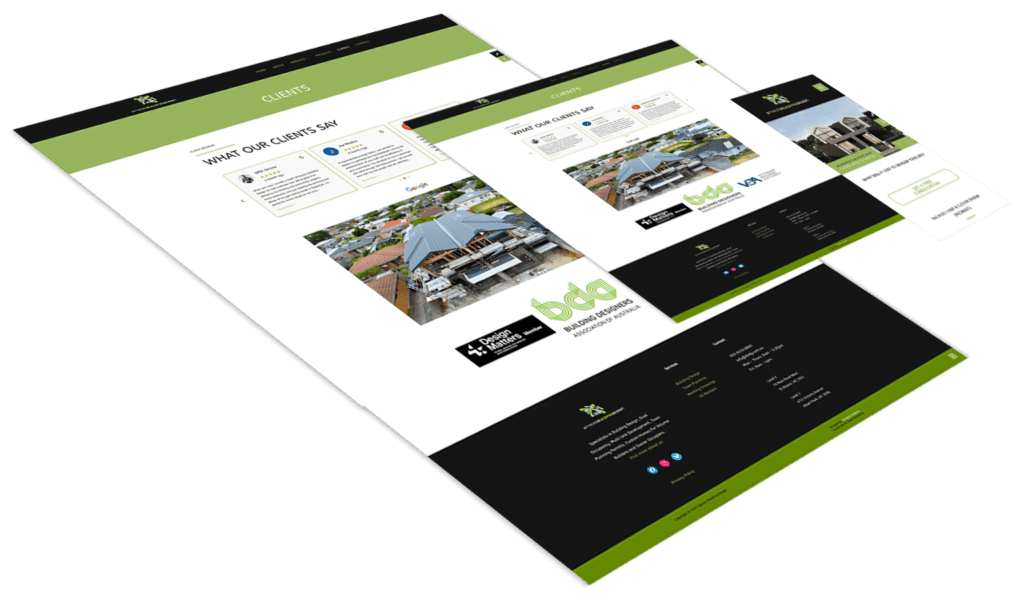What is the price of building a website?
What is the price of building a website?
Identify the type of website you require
Whether it's a simple business website, a conversion-focused platform, an ecommerce store, or a custom featured website, understanding your needs is key.
Get a domain name
To start a website, you must have a domain name.Your website address on the internet is referred to as its domain name.The cost of registering a domain can vary significantly, ranging from $10 to $50 per year. Additionally, investing in an SSL certificate for security is essential, with options ranging from basic to extended validation. one of the reliable domain name provider in Australia is crazydomains price of domain name is reasonable.
Choose a web host
Having just a domain isn't enough to get your website live. You also need hosting, which is basically the space where your website lives on the internet. Hosting comes with its own cost separate from the domain, although sometimes you can find plans that bundle them together. Hosting costs can vary based on factors like site traffic, storage requirements, and performance needs, typically starting around $55 per month.
DIY website design
If you're working with a tight budget, using these website builder packages to create your site yourself can save you a good amount of money. They're designed to be user-friendly, often with drag-and-drop features, so you don't need any technical skills to get started. It might seem a bit overwhelming at first, but after spending a few minutes in the do-it-yourself (DIY) program, most people find they're able to build a website that suits their needs.
These programs typically offer basic features for free or at a low cost. However, if you want access to more advanced features or unique themes, you'll need to subscribe to a premium plan, which can come with higher subscription fees. The costs vary depending on the platform and the plan you choose, ranging from $100 to $500 per year, with the average falling around $200 annually.
Professional website designers
If the idea of building your own website feels overwhelming or simply isn't your thing, don't worry. Just know that hiring a professional to do it for you will likely cost more. However, it can also take a lot of stress off your plate and result in a truly unique and stunning website.
Professional website designers typically charge either by the hour or a flat rate for the entire project. It's important to find someone with a strong portfolio, as this often means fewer design revisions and a better chance of achieving the look and feel you want for your site. When working with a designer, it's helpful to share examples of websites you admire that are similar to what you envision for yours. This gives the designer a good starting point. Also, discuss colour schemes to ensure the website aligns with your brand and the message you want to convey to your audience.
The cost can vary widely based on the designer's experience and the specific needs of your project. However, it's not uncommon to receive quotes ranging from $60 to $100 or more per hour.
SSL
A lot of small businesses overlook the importance of getting an SSL certificate for their website. But really, it's pretty crucial. An SSL certificate acts like a digital ID card for your website, verifying its identity and creating a secure, encrypted connection. This not only keeps your visitors' information safe but is also necessary if you want to accept online payments, making it a must-have for any online store.
Having an SSL certificate means your site is protected from cyberattacks, which is a big deal for your visitors' peace of mind. Without it, some browsers might even warn users that your site isn't secure, scaring them off before they even click through. When you have an SSL certificate, your website's URL changes from "http" to "https," signalling to browsers that you take security seriously.
Luckily, many web hosting providers offer SSL certificates for free. But if you prefer, you can also buy one from a third-party provider.
Add-ons and Plugins
Whether you're using a website builder, WordPress, or delving into e-commerce, you'll probably need to add extra features called plugins. These can do all sorts of things, like adding contact forms, testimonials, or newsletter sign-ups.
There are both free and paid plugins available. It's important to think about which features are worth paying for. Depending on what you need, a plugin might be free or cost over $100 per year for a subscription.
Be careful not to overload your site with plugins, though. Each one adds extra processing time, which can slow down your site's speed. This isn't good for user experience or search engine optimisation (SEO). Only install plugins that genuinely improve your visitors' experience, and remember to regularly update them to keep everything running smoothly. If you stop using a plugin, it's a good idea to delete it to keep your site running efficiently.
Hiring a Webmaster
If you're thinking about launching a big website, you might want to think about bringing on a webmaster or content manager. This person will be in charge of keeping your website running smoothly and up-to-date.
The cost of hiring a webmaster or content manager depends on what your organisation needs. You can hire someone full-time, part-time, or on a contract basis. It could be as little as a few hours a month, or if you're hiring someone full-time, it could cost upwards of $6,500 per month.
Search Engine Optimisation (SEO)
To get your website to show up well on Google, you can't just cross your fingers and hope for the best. It requires some effort.
If you're aiming to land your site on the first page of Google search results, you might want to consider hiring a search engine optimisation (SEO) specialist. The cost can range from $800 to $9,000 plus per month, depending on how much work they need to do on your content and web pages. The more pages you have that need optimising, the higher the cost.
An SEO specialist will help you figure out what content to create and which keywords to target, and they'll provide monthly reports to track your progress. Using WordPress for your website can give you more flexibility and often leads to better rankings on Google.
One big perk of hiring an SEO specialist is that they'll keep an eye out for any issues on your site, like pages that can't be found (the dreaded 404 error). These errors can really mess with your site's user experience and hurt your SEO rankings if you don't fix them.
Images and Design
Another expense you'll encounter when building a website is the artwork. Whether it's your company's logo, product photos, or lifestyle shots, these visuals can really add up. While you can find free images on stock photo sites like Pexels or Pixabay, they might not set your business apart from the competition.
Using royalty-free images is usually cheaper than arranging a photoshoot. These images can range from free to around $100 each. On the other hand, hiring a photographer for a product shoot might cost between $25 and $500 per hour, depending on their experience and equipment.
If you can swing it, it's often worth investing in professional photography or subscribing to a comprehensive stock photo library like Shutterstock. Just make sure you hire skilled professionals who know what they're doing. A simple mistake could lead to website issues, costing you revenue in the long run.
Website Costs by Industry
The cost of building a website can vary greatly depending on your industry and specific needs. Different industries may require specific features or integrations, which can affect the overall cost of design and development. Additionally, the number of pages on your site will also impact the workload and cost.
Here's a breakdown of typical costs for different types of websites
- Small Business Website (Up to 16 Pages): $2,000 to $9,000 for initial design and development, with annual maintenance costs of up to $1,200.
- Corporate Website (Up to 75 Pages): $10,000 to $35,000 for design and development, with maintenance costs of up to $15,000 per year.
- E-Commerce Website (Up to 1,000 Products): $5,000 to $55,000 for initial setup, with maintenance costs of up to $30,000 annually.
- Website Application (Up to 2,000 Pages): $6,000 to $75,000 for development, with maintenance costs of up to $60,000 per year.
It's worth noting that these costs involve handing over the entire website project to a third party, including design, coding, and ongoing maintenance. Many website owners start with a smaller budget and handle as much as they can internally. As the business grows, they may outsource more tasks to external parties.
Most websites fall into the small business category, providing basic information about the company, its products or services, and maybe a simple shopping cart or contact form. Corporate websites are more extensive, often including studies or research findings on various pages, leading to higher costs due to the increased number of pages.
E-commerce websites are common and can be initially set up using platforms like Shopify for a monthly fee. However, as businesses expand, they may invest in custom solutions to enhance user experience.
The most expensive option is a website application, which involves extensive coding and development, potentially including custom solutions like customer relationship management systems. Creating a custom solution tends to cost more than using pre-made templates.
Website costs can vary widely depending on factors like the type of website, its complexity, and whether you hire professionals or use DIY solutions. Typically, costs range from a few hundred to several thousand dollars.
Assess your needs by considering the purpose of your website, the features you require, and the content you want to include. Creating a detailed plan will help you understand the scope and budget accordingly.
Factors such as design complexity, functionality requirements, integration of third-party tools, e-commerce capabilities, and ongoing maintenance needs can all influence website development costs.
Yes, it's possible to create a website using user-friendly website builders or content management systems like WordPress, which don't require advanced technical skills. However, more complex websites may benefit from professional assistance.
Examples include custom integrations with other systems, advanced e-commerce features, membership portals, booking systems, or complex interactive elements like calculators or configurators.
If you have specific design or functionality requirements that go beyond your technical abilities, or if you prefer a high-quality, custom-designed website, hiring a professional web designer or developer may be beneficial.
Hidden costs may include ongoing expenses for hosting, domain renewal, security measures, software updates, and technical support. It's essential to consider these costs when budgeting for website maintenance.
Yes, many businesses start with a simple website and gradually add features or redesign as needed. Scalability is an essential consideration when choosing a platform and planning your website's development.
All-in-one website builders offer user-friendly interfaces, pre-designed templates, integrated hosting, and customer support, making them an accessible option for DIY website creation without requiring coding skills.
Common pitfalls include underestimating costs, failing to account for ongoing expenses, choosing the wrong platform or features, and not planning for scalability or future growth. It's crucial to research thoroughly and create a realistic budget.







